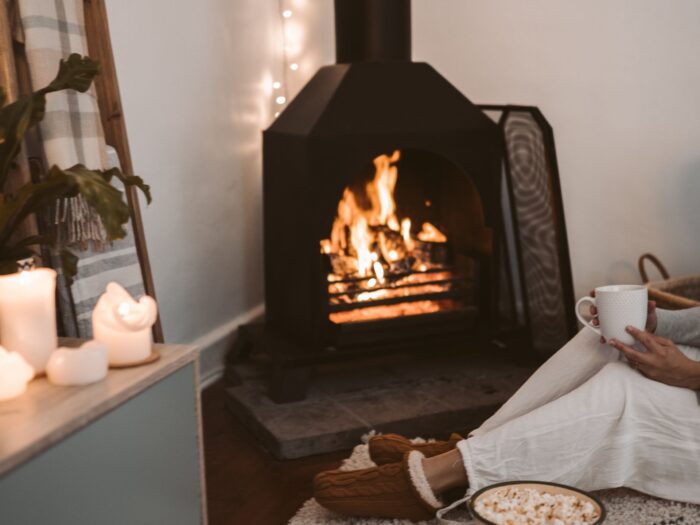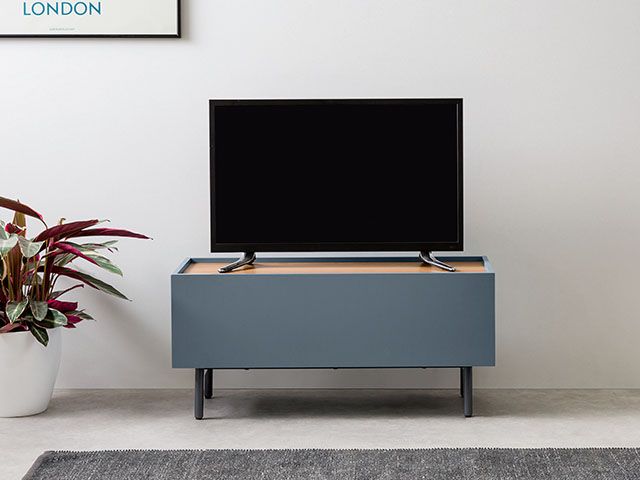
Image Caption: Pexels/Pavel Danilyuk
12 easy ways to save money on energy bills
The mercury is starting to drop and with winter a mere whisper away, we’re looking to hunker down and crank up the cosy.
But with the cost of living crisis still rumbling on, households look set to face another winter of financial uncertainty when it comes to energy bills. And that’s despite the recent reduction in costs at the start of October.
Frustratingly, according to the Energy Saving Trust (EST) this latest change will only lower a typical household’s bills by around £150 a year. This means many people are still paying hundreds of pounds more for their gas and electricity compared to two years ago.
The biggest cost-savers come in the form of home improvements, such as insulation, double-glazing and solar panels. But these can be extremely expensive.
But before you reside yourself to another winter shivering under blankets, there are some simple yet somewhat surprising ways to save on your energy bills. Minimal spend required.
“Whatever your budget, there are actions you can take that can help you save money on your heating costs this winter,” says Joanna O’Loan, knowledge manager at Energy Saving Trust (EST).
“Quick, low and no-cost measures such as blocking up draughts or turning down your thermostat can help you start making savings immediately.”
So bring on snuggle season with the aid of our 12 tips to reduce your energy bills while staying toasty.

The right date to put the heating on
It’s an age-old argument, but believe it or not there is an official expert-backed date to flick on the thermostat.
While some households may have been enjoying a toasty warmth since the end of the UK’s soggy summer, experts recommend turning on your central heating around the 29th of October. This is when daylight saving time ends and temperatures begin to fall.
As that date has officially passed, we’re now allowed to crank it up.
To save money on bills, however, it is recommended not to use heating at night, or when you are not at home.
If you are going away when it’s very cold, it’s a good idea to put your heating on a timer to prevent pipes freezing up.
“We always advise keeping your thermostat at a minimum of 10 degrees to protect your pipes from freezing,” says Andy Kerr, Founder at BOXT.
“Frozen pipes not only stop your heating from working properly, but can lead to costly complications, including burst pipes and plumber call-out fees.”

Ditch the draughts
Draughts let warm air out and cold air in, meaning your heating system has to work a lot harder to keep your home warm.
But fitting relatively inexpensive draught-proofing strips to windows and doors is a quick and easy DIY job. And it’s one that, according to the EST, could save you around £45 a year on your energy bills.
“When fitting, make sure not to block up any intentional vents as these allow essential fresh air into your house,” O’Loan adds.

Draw the curtains
Sounds obvious right? But closing blinds and curtains when there’s a chill will help limit your home’s heat loss, meaning rooms will feel cosier and less £££ spent on heating.
It’s worth making sure your blinds and curtains don’t block any heat from radiators getting into the room. When they are closed, O’Loan recommends they should stop between the edge of the windowsill and above any radiators.
Make the most of the sun
And use it to help keep your rooms cosy. “Open your blinds and curtains during sunny spells to help heat the rooms inside your home,” recommends Kerr.
“When grey skies and rainy showers take over, shutting your curtains and blinds will help to keep the warmth in.”

Try the step-down challenge
And lower your thermostat by 1°C. “By turning your heating down by just 1°C, you can save up to 10% on your heating bill,” explains Jordan Chance, heating expert from PlumbNation.
It is also important to avoid a classic thermostat faux pas. “Contrary to popular belief, turning up your thermostat does not heat up your room quicker. This method will only send your energy bills skyrocketing,” Chance adds.
According to the World Health Organisation, the lowest comfortable temperature for most people is between 18°C and 21°C.
Set a heating schedule
If you’re popping out for a few hours, O’Loan suggests switching your heating off and setting it to come back on for when you get back.
“It costs less to set your heating to come on when you need it and just in the rooms that you are using, rather than keeping it on low all day,” she explains.

Clean your radiators
If your radiators aren’t in your weekly cleaning routine, then now’s a good time to add them.
“A build-up of dust can affect your health, allergies and your heating,” explains Chance.
“Layers of dust in your radiator can prevent heat from escaping effectively, meaning your radiators will have to work harder to warm your room.” Who knew?
Address non-obvious drafts
Open fires, when not in use, result in a huge heat loss because warm air from the room is sucked out of the chimney.
“A ‘chimney sheep’ is a way of plugging the chimney when the fire is not in use and will save loads,” suggests Jo Alsop, founder of The Heating Hub.
“Warm air escaping out of letter boxes and around doors and windows also wastes lots of energy and increases energy bills.”
Don’t dry clothes on the radiator
Sure, it may seem convenient but the clothes you place over the top of your radiators prevent the heat from escaping and heating your room. As your boiler has to pick up the slack and work at a greater rate, this increases costs.
“Similarly, the increase in the air’s moisture can create condensation, leading to potential issues with mould and dampness,” notes Kerr.
“To dry your clothes faster, consider using a dehumidifier. These are often much cheaper to use than tumble dryers and can prevent damp in your home.”
Switch off vampire appliances
Some electrical appliances quietly suck up energy even when left in standby mode.
Recent research by British Gas suggests that households could save an average of £147 per year just by switching off so-called ‘vampire devices’, which refers to appliances that use power even if they are on standby.
Further stats from SaveMoneyCutCarbon suggest the average amount of energy consumed by gadgets on standby or in a non-active state is between 9% and 16% of a home’s total energy bill. So remember to unplug that TV when it’s not in use.

Be smart with radiator settings
According to the Energy Saving Trust, installing thermostatic radiator valves (TRVs) and using them with your thermostat could save up to £75 per year.
The EST recommends using the thermostat to control the heat in your main living space and using TRVs to lower the heating in rooms you don’t use as often.
Wash your clothes at lower temperatures
Washing your clothes at a lower temperature is an easy yet effective way you can reduce your energy use and spending.
Reducing your regular wash to 30° or even 20° can help reduce your electricity usage by up to 40% over the course of the year compared to higher temperatures.
“Fortunately, most laundry detergents still work just as effectively at a cold wash as they do at higher temperatures, so not only are clothes kept nice and fresh, but your energy bills are kept low as well,” explains Mark Sait, CEO/founder of SaveMoneyCutCarbon.




